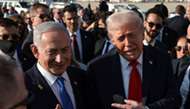On Tuesday, one of those detainees, Mohamedou Ould Slahi, who was sent to Guantanamo in 2002 and remains there to this day, is poised to offer a powerful rejoinder. Three years into his detention . years during which he was isolated, tortured, beaten, sexually abused and humiliated . Slahi wrote a 466-page, 122,000-word account of what had happened to him up to that point.
His manuscript was immediately classified, and it took years of litigation and negotiation by Slahi’s pro bono lawyers to force the military to declassify a redacted version. Even with the redactions, “Guantanamo Diary” is an extraordinary document . “A vision of hell, beyond Orwell, beyond Kafka,” as John le Carre aptly describes it in a back cover blurb . that every American should read.
A native of Mauritania, Slahi, 44, is fluent in several languages . he learned English while in Guantanamo . and lived in Canada and Germany as well as the Muslim world. He came under suspicion because an Al Qaeda member, who had been based in Montreal . where Slahi had also lived . was arrested and charged with plotting to bomb the Los Angeles International Airport in 1999. Slahi was questioned about this plot several times, but he was always released. After 9/11, Slahi was detained again for questioning. That time, he was turned over to the American authorities, in whose captivity he has been ever since.
What was he accused of? Slahi asked this question of his captors often and was never given a straight answer. This, of course, is part of the problem with Guantanamo, a prison where being formally charged with a crime is a luxury, not a requirement. His efforts to tell the truth . that he had no involvement in any acts of terrorism . only angered his interrogators. “Looks like a dog, walks like a dog, smells like a dog, barks like a dog, must be a dog,” one interrogator used to say. That was the best his captors could do to explain why he was there. Yet the military was so sure he was a key Al Qaeda player that he was subjected to “special interrogation” techniques that had been signed off by the secretary of defense, Donald Rumsfeld, himself.
“Special interrogation techniques,” of course, is a euphemism for torture. The sections of the book that describe his torture make for harrowing reading. Slahi was so sleep-deprived that he eventually started to hallucinate. Chained to the ground, he was forced to “stand” in positions that were extremely painful. Interrogators went at him in shifts . 24 hours a day. Sometimes during interrogations, female interrogators rubbed their breasts over his body and fondled him.
It is hard to read about his torture without feeling a sense of shame.
Does Slahi crack? Of course: to get the torture to stop, he finally lied, telling his interrogators what he thought they wanted to hear, just as torture victims have done since the Inquisition. “Torture doesn’t guarantee that the detainee cooperates,” writes Slahi. “In order to stop torture, the detainee has to please his assailant, even with untruthful, and sometime misleading [intelligence].” McCain, who was tortured in Vietnam, knows this; last month, he made a powerful speech in which he condemned America’s use of torture, saying, “the use of torture compromises that which most distinguishes us from our enemies, our belief that all people, even captured enemies, possess basic human rights.” That is also why it is so disheartening that McCain has allied himself with those who want to keep Guantanamo open.
In 2010, a federal district judge ruled in favor of Slahi’s habeas corpus petition because the evidence against him was so thin. The government appealed, and the order remains in limbo.
I asked Nancy Hollander, one of Slahi’s lawyers, to describe her client. “He is funny, smart, compassionate and thoughtful,” she said. All of these qualities come through in his memoir, which is surprisingly without rancor. “I have only written what I experienced, what I saw, and what I learned firsthand,” he writes toward the end of his book. “I have tried not to exaggerate, nor to understate. I have tried to be as fair as possible, to the U.S. government, to my brothers, and to myself.” One of the wonders of the book is that he does come across as fair to all, even his torturers.
But the quote that sticks with me most is something that one of his guards told him, something that could stand as a fitting epitaph for Guantanamo itself: “I know I can go to hell for what I did to you.”
스마터리빙
more [ 건강]
[ 건강]이제 혈관 건강도 챙기자!
[현대해운]우리 눈에 보이지 않기 때문에 혈관 건강을 챙기는 것은 결코 쉽지 않은데요. 여러분은 혈관 건강을 유지하기 위해 어떤 노력을 하시나요?
 [ 건강]
[ 건강]내 몸이 건강해지는 과일궁합
 [ 라이프]
[ 라이프]벌레야 물럿거라! 천연 해충제 만들기
 [ 건강]
[ 건강]혈압 낮추는데 좋은 식품
[현대해운]혈관 건강은 주로 노화가 진행되면서 지켜야 할 문제라고 인식되어 왔습니다. 최근 생활 패턴과 식생활의 변화로 혈관의 노화 진행이 빨라지고
사람·사람들
more
“취미생활로 다진 친목… 선후배들과 만든 모교사랑”
사진러브한인 사진 동호회 사진러브(회장 크리스 고)는 13일 용수산에서 송년모임을 갖고 한 해를 마무리하는 뜻깊은 시간을 가졌다. 이날 모임에…

[홀인원] 이상원 박사
일반외과 전문의 이상원(왼쪽) 박사가 지난 9일 뉴포트비치 소재 골프장 9번 홀(152야드)에서 레스큐 클럽으로 친 샷이 그대로 홀에 빨려 들…
[송년행사 게시판] 재미시인협회
재미시인협회(회장 지성심)는 오는 20일 오후 4시 가든스윗호텔에서 한 해를 마무리하며 동인지 ‘외지’ 제35집 출판 기념회와 ‘제23회 재미…
[송년행사 게시판] 향군단체 연합
6.25 참전유공자회와 대한민국 육군협회 등 남가주 지역 향군 단체 연합은 19일 오전 11시30분, 용궁에서 송년 행사를 개최한다. 드레스코…
[송년행사 화보] “이웃과 함께 나누고 지인과 함…
KYCC13일 윌튼 플레이스 초등학교에서 열린 ‘한인타운청소년회관(KYCC) 홀리데이 카니발’이 성황리에 막을 내렸다. 올해는 KYCC 창립 …
많이 본 기사
- 엡스타인파일 공개 후폭풍…법무부 ‘트럼프 삭제’ 의혹 선긋기
- ‘열애설→결별설 겪은’ 제니·지드래곤, 단둘이 ‘MMA’ 대상 쓸어갔다
- ‘미소천사’ 김아랑, 너무도 진솔했던 ‘은퇴 이유’ 고백 “경기 후 아쉬움 아닌 고마움 들어 결심했다”
- 신민아♥김우빈, 결혼식날 전한 깜짝 소식..3억 기부한 예비 부부
- ‘SNS검증’ 美비자심사 지연에…빅테크, 또 직원 출국자제 권고
- ‘부상 아웃 공식 확정’ 이강인, 절뚝일 때부터 이상했다 “왼쪽 허벅지 근육 이상”... 폼 최고였는데 아쉬워
- 美, 우크라戰 종전 중재 속도…마이애미서 우크라·러 연쇄회동
- 美, 베네수 연안서 유조선 추가 나포…긴장 또 고조될 듯
- 위성락 “내년부터 농축·재처리·핵잠 한미협의 동시다발 진행”
- ‘反트럼프’ 공화 큰손, 작년 대선에만 약 5억4천800만달러 썼다
- 최화경 화가 개인 작품전시회
- 트럼프, ‘바이든 임명’ 직업 외교관 출신 대사들 대거 소환
- 교황, 전세계 추기경 바티칸 소집…내달 7∼8일 첫 회의
- 美·이집트 등 4개국, 가자 평화구상 진전·후속조치 논의
- 개명 하루만에 케네디센터 외벽에 ‘트… 1
- ‘유세방불’ 트럼프 “관세가 물가 올… 1
- 신민아♥김우빈, 결혼식 날 웨딩 사진 첫 공개..눈부신 투샷
- [건강포커스] “밤에 더 자주 깨는 어르신, 다음 날 인지수행 능력 떨어져”
- 조이풀여성합창단, 실버타운 데이케어 위문공연
- 대북제재 완화 시그널… 이 대통령, … 1
- 요르단 “美 시리아 IS 공습에 참여…안보 위협 저지”
- 퀸즈장로교회 ‘사랑의 바구니’130개 이웃에 전달
- “네타냐후, 트럼프 만나 ‘이란 추가 타격’ 설명 계획”
- “스페이스X, 상장 주관사 선정 착수…모건스탠리 유력”
- 위기의 트럼프 “내년봄 최대규모 세금환급”
- 젤렌스키 “우크라 선거 방식, 푸틴이… 1
- 尹 김건희특검 첫 조사 8시간 반 만에 종료…6개 혐의 모두 부인
- 시민권 박탈 착수⋯매달 200명 1
- 쿠팡 주주, 美법원에 집단소송… “정… 1
- 구글, 검색결과 크롤링 업체 상대 소송…AI 경쟁사 견제 의도
- 해군, 트럼프 ‘황금함대’ 새 전함 … 1
- ‘손예진♥’ 현빈, 학부모 모드ON.. “아들이 배우 한다면? 하..” 한숨
- 법무부, ‘엡스타인문건’ 공개…정재계 추가 연루 증거 나올까
- ‘새댁’ 함은정, 결혼식 하자마자..내조의 여왕
- 뉴욕주 차량운전자 벌점 규정 대폭 강화
- 안세영, ‘천적’ 야마구치도 넘었다…역대 최다승까지 단 한 걸음
- 30년 만에 ‘금리 0.5%’ 허문 일본
- 尹 소환한 김건희특검, ‘명태균 의혹’부터 6가지 혐의 순차 추궁
- ‘80세’ 선우용여, 대세 유튜브 수… 1
- 각국 AI 패권 경쟁 본격화… 5조달러 시장 선점 총력
- [업계] 12월 내내 크리스마스 특별 메뉴 출시
- “루비랑 데이트”..송혜교의 따뜻한 … 1
- “AI 보안으로 클라우드 시장 잡자”…구글, 100억 달러 보안 파트너십
- “박나래, 주사 이모 약에 내성 생겨..약 떨어지면 연락하라고”
- 뉴욕-뉴저지 다리· 터널 통행료 또 오른다
- 美, 베네수 마두로 압박 강화…처제·동서·조카 무더기 제재
- 기아 미국법인, 2026년형 ‘K4 … 1
- 아마존, 칩 조직 통합 개발사 본격 변신 포석
- 이 대통령 “피도 눈물도 없는 금융사… 1
- 테라폼랩스 파산관재인, 테라 가격부양 금융사에 수조원대 소송
1/5지식톡

-
 ☝️해외에서도 가능한 한국어 선생님…
0
☝️해외에서도 가능한 한국어 선생님…
0이 영상 하나면 충분합니다!♥️상담신청문의♥️☝️ 문의 폭주로 '선착순 상담'만 진행합니다.☎️ : 02-6213-9094✨카카오톡ID : @GOODEDU77 (@골뱅이 꼭 붙여주셔야합니다…
-
 테슬라 자동차 시트커버 장착
0
테슬라 자동차 시트커버 장착
0테슬라 시트커버, 사놓고 아직 못 씌우셨죠?장착이 생각보다 쉽지 않습니다.20년 경력 전문가에게 맡기세요 — 깔끔하고 딱 맞게 장착해드립니다!장착비용:앞좌석: $40뒷좌석: $60앞·뒷좌석 …
-
 식당용 부탄가스
0
식당용 부탄가스
0식당용 부탄가스 홀세일 합니다 로스앤젤레스 다운타운 픽업 가능 안녕 하세요?강아지 & 고양이 모든 애완동물 / 반려동물 식품 & 모든 애완동물/반려동물 관련 제품들 전문적으로 홀세일/취급하는 회사 입니다 100% …
-
 ACSL 국제 컴퓨터 과학 대회, …
0
ACSL 국제 컴퓨터 과학 대회, …
0웹사이트 : www.eduspot.co.kr 카카오톡 상담하기 : https://pf.kakao.com/_BEQWxb블로그 : https://blog.naver.com/eduspotmain안녕하세요, 에듀스팟입니다…
-
 바디프렌드 안마의자 창고 리퍼브 세…
0
바디프렌드 안마의자 창고 리퍼브 세…
0거의 새제품급 리퍼브 안마의자 대방출 한다고 합니다!8월 23일(토)…24일(일) 단 이틀!특가 판매가Famille: $500 ~ $1,000Falcon: $1,500 ~ $2,500픽업 & 배송직접 픽업 가능LA…
케이타운 1번가
오피니언
 한영일 / 서울경제 논설위원
한영일 / 서울경제 논설위원[만화경] 웰다잉 인센티브
 캐슬린 파커 워싱턴포스트 칼럼니스트
캐슬린 파커 워싱턴포스트 칼럼니스트 [캐슬린 파커 칼럼] 아이들을 온라인에서 보호하기
 양상훈 수필가ㆍ시인
양상훈 수필가ㆍ시인 [한국춘추] 경제대공황ㆍ제2차 세계대전 승리로 극복한 루스벨트 리더쉽

[왈가 왈부] 고환율에 외환 건전성 완화·서학개미 규제… 미봉책 아닌가요
 수잔 최 한미가정상담소 이사장 가정법 전문 변호사
수잔 최 한미가정상담소 이사장 가정법 전문 변호사 [수잔 최 변호사의 LIFE &] AI 시대 편리함에 안주하지 말자
 김도년 성균관대 건축학과 교수 스마트도시·건축학회장
김도년 성균관대 건축학과 교수 스마트도시·건축학회장 [로터리] 지멘스가 만드는 미래 동네
1/3지사별 뉴스

퀸즈장로교회 ‘사랑의 바구니’130개 이웃에 전달
퀸즈장로교회가 18일 크리스마스를 앞두고 교인들의 정성과 사랑이 듬뿍 담긴 ‘사랑의 바구니’ 130개를 소방서와 경찰서, 요양원, 선교회, 그…
시민권 박탈 착수⋯매달 200명

“이웃 돌보는 여러분이 동역자”
워싱턴성광교회(담임목사 임용우)는 18일 한인단체와 소방서‧도서관 등에 총 2만9천 달러의 성금을 전달했다. 지난 2011년부터 15년째 지역…
소기업 지원에 1천만 달러 투자

위기의 트럼프 “내년봄 최대규모 세금환급”
트럼프 대통령은 17일 “취임 1년 만에 우리는 누구도 상상하지 못한 성과를 이뤄냈다”고 말했다.트럼프 대통령은 동부시간 이날 밤 9시부터 백…
[새해부터 이렇게 달라진다] 최저임금 또 오르고… 유급 병가는 더 확대

오늘 하루 이 창 열지 않음 닫기 




















































.png)


댓글 안에 당신의 성숙함도 담아 주세요.
'오늘의 한마디'는 기사에 대하여 자신의 생각을 말하고 남의 생각을 들으며 서로 다양한 의견을 나누는 공간입니다. 그러나 간혹 불건전한 내용을 올리시는 분들이 계셔서 건전한 인터넷문화 정착을 위해 아래와 같은 운영원칙을 적용합니다.
자체 모니터링을 통해 아래에 해당하는 내용이 포함된 댓글이 발견되면 예고없이 삭제 조치를 하겠습니다.
불건전한 댓글을 올리거나, 이름에 비속어 및 상대방의 불쾌감을 주는 단어를 사용, 유명인 또는 특정 일반인을 사칭하는 경우 이용에 대한 차단 제재를 받을 수 있습니다. 차단될 경우, 일주일간 댓글을 달수 없게 됩니다.
명예훼손, 개인정보 유출, 욕설 등 법률에 위반되는 댓글은 관계 법령에 의거 민형사상 처벌을 받을 수 있으니 이용에 주의를 부탁드립니다.
Close
x